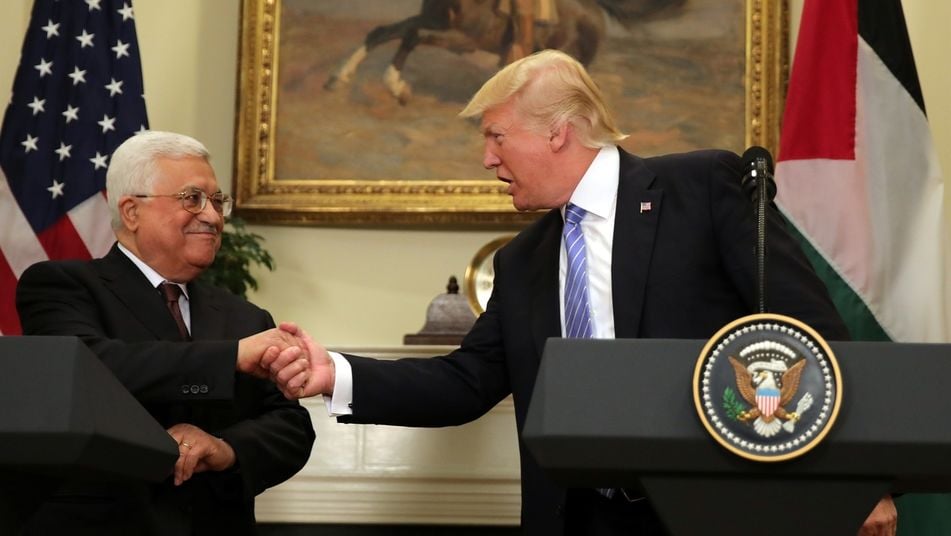Trump Isn’t the President Israel Was Hoping For
 Trump is already pushing Israel to commit suicide.
Trump is already pushing Israel to commit suicide.
Trump will also arrive to a chilly reception from Israel’s defense establishment, some members of which are furious that he shared classified information with the Russian foreign minister in their May 10 meeting in the Oval Office. The material reportedly came from an Israeli source embedded in the Islamic State’s self-proclaimed caliphate.
All of this has ruined what should have been a honeymoon. The stakes are high for Netanyahu, who had testy relations with both Barack Obama and Bill Clinton. This is his first chance in 11 years as prime minister to work with a sympathetic Republican in the White House and a GOP-controlled Congress. “We really do need to get along with him,” Zalman Shoval, who served two stints as the Israeli ambassador in Washington, told me. “Otherwise they’re going to wonder what we’re doing over here in Israel.”
There is an irony in all this. For all the public animosity between the two leaders, Obama gave Israel a record $38-billion, 10-year military aid package (the previous agreement, signed by George W. Bush in 2007, was for $30 billion in aid); he also won praise from generals and spies for his efforts to bolster the security relationship. And, aside from a symbolic Security Council resolution in December that condemned Israeli settlements, he offered solid diplomatic support to Netanyahu. Most important, from Netanyahu’s point of view, Obama was a useful scapegoat—a way to rein in his right-wing allies. He cited the perceived threat of retaliation from Obama to explain his reluctance to establish new settlements or annex territory.
With Trump, Netanyahu has no excuses, and the political price of indulging the new president could be steep. The prime minister’s aides have talked in recent weeks with the Zionist Union, the main center-left party, about the possibility of forming a unity government, one that would exclude Bennett, officials have told me. But the party is skeptical: They held similar talks last year, only to be humiliated by a bait-and-switch when Netanyahu used the threat of a centrist government to lure Lieberman into the coalition. They doubt his sincerity, too, and worry about serving as what one lawmaker called “a kosher stamp” for a doomed peace process.
So Netanyahu may find himself caught between his conservative coalition and the temperamental Trump. The last round of peace talks, which ended in 2014, caused deep cracks in what was then a center-right government. The current coalition—Israel’s most hawkish in decades—is unlikely to survive any serious effort to end the conflict.
“Do I topple a government because everything I want doesn’t happen? No,” Bennett said. “But giving up land is a red line.”
